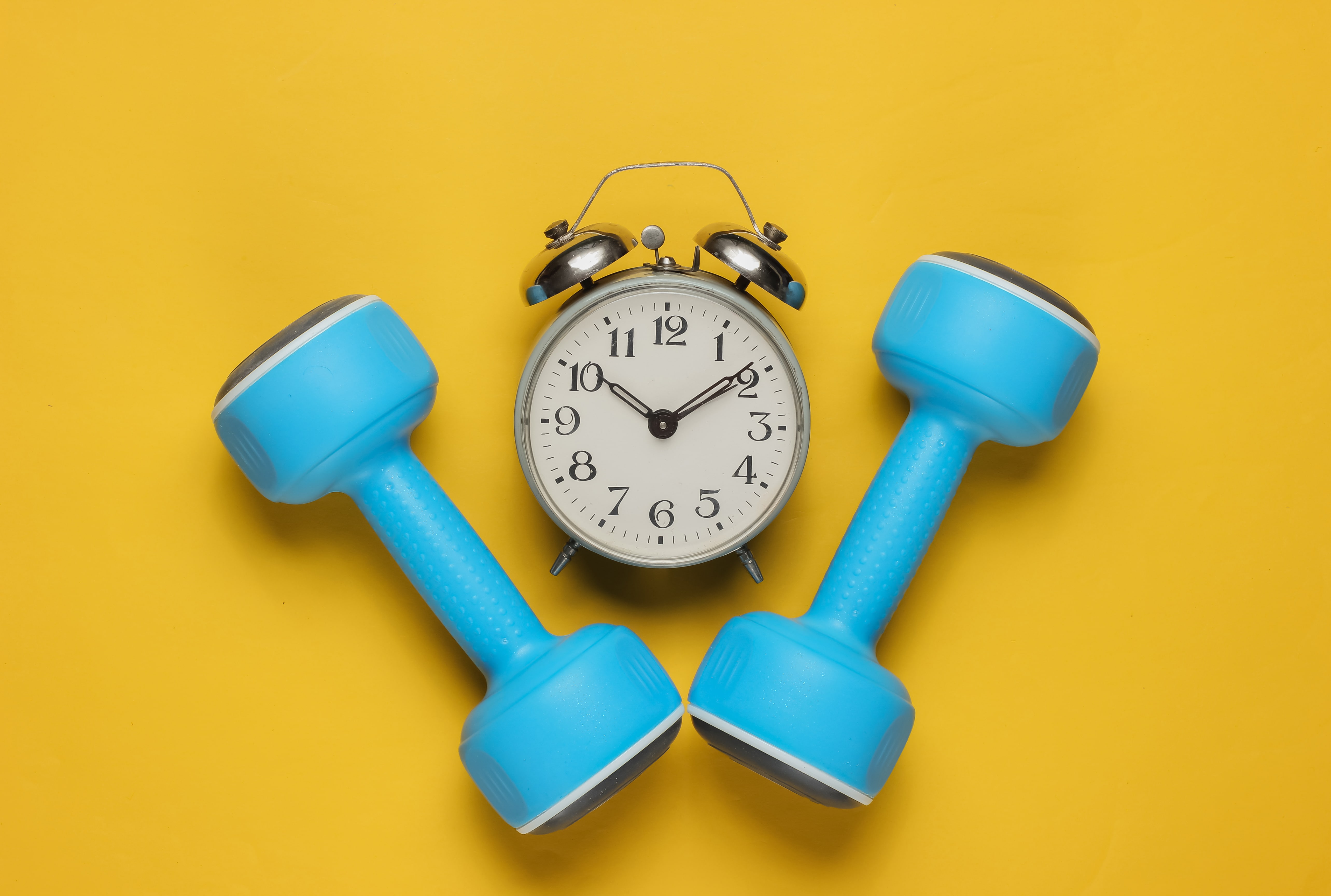Posted by Rachel Marshall - Brand Manager on 6th Sep 2022
How Does Our Diet Impact Our Sleep?
There are many things that can impact our sleep.
Scrolling on social media, staying up too late, or simply working longer hours than we should all wreak havoc with us getting a good night’s rest.
But what about our diet?
Could what we eat really affect how well we sleep?
We wanted to find out, so we surveyed more than 500 people of various ages and from various locations across the UK to ask them about their daily eating habits and how much shuteye they can manage to get each night.
Processed foods and poor sleep

We all know that eating natural, nutrient-dense foods we have prepared ourselves is the healthier food choice. But when life gets busy, it can be convenient to opt for a takeaway or to choose a pre-prepared food alternative.
According to the NHS, processed foods are foods that have been altered during preparation. And while not all processed foods are unhealthy, some contain high levels of sugar, salt, and saturated fat, which isn’t great for our health. (1)
Research has shown that when we have disrupted sleep, our appetite increases and our capacity for self-control decreases, which means we are more likely to give into unhealthy cravings. (2)
Interestingly, when we looked at our survey results, we discovered that the demographics that ate processed foods the most frequently also reported higher levels of sleep deprivation. For example, we found that respondents who reported an annual income of £15,000 or less ate processed foods more regularly than respondents from any other income bracket – more than 32% said they eat processed foods every two to three days. (a)
And when we looked at how well they’re sleeping, we found that more than 30% of those earning a lower salary only managed four to five hours sleep a night, compared to just 14% of those earning between £35,000 and £45,000 a year. (b) 21% of the lowest earner also said they always feel sleep deprived, compared to only 9% of higher earners who felt the same. (c)
Of course, processed foods are not the only factor at play here, but it does a highlight a potential correlation between our diet and sleep.
Getting your five-a-day

The World Health Organisation (WHO) recommends eating at least five portions of fruit and vegetables every day to lower our risk of severe health problems, such as heart disease, stroke, and some types of cancer. (3)
Research has shown that eating a diet rich in fruit, vegetables, and unprocessed foods can help improve our mood while swapping our caffeinated beverages for water can boost our energy and sleep quality. (4)
When we looked at regions across the UK, we found that those living in the Southeast of England had the least number of people reporting to be lacking in sleep, with more than 22% saying they rarely feel sleep deprived. (d)
And when we looked at their diet, we found that more than 58% say they eat fruit and veg every day, (e) and only 5% report eating processed foods on a daily basis. (f)
In comparison, when we looked at those living in the Northwest, 20% say they constantly feel sleep deprived, (g) and when we looked at their diet, only 36% say they eat fruit and veg every day, (h) while more than 12% admit their daily diet contains processed foods. (i)
Consuming animal products

The benefits of eating a more plant-based diet are commonly known(8), and over recent years, there has been a shift toward many of us reducing the amount of meat we eat. Recent statistics reveal that consumer spending on meat-free food items in the UK doubled between 2016 and 2022, going from 300 million to 600 million in just six years. (5)
While some may follow a vegan lifestyle, others may adopt a vegetarian diet or maybe actively reducing the amount of meat and animal products they consume.
Our survey results revealed a generational difference between those who are and those who aren’t reducing their meat intake. For example, only 21% of adults aged between 16 and 24 said they eat meat or animal products every two to three days, but when we asked adults aged 45 to 54, this figure rose to 43%. (j)
And when we looked at how well each group sleeps, 25% of those in the older age bracket say they always feel sleep deprived, compared to just 15% of those in the younger age group. (k)
There are plenty of reasons why some may feel more sleep deprived than others, from the type of work they do, to levels of stress they may be experiencing, however it does indicate there could be a potentially interesting correlation between the types of foods we consume and how well we sleep.
Does it matter when we eat before bed?
While it’s important to be mindful of what we’re eating, we also need to look at when we’re eating.
Research suggests that eating too late in the day doesn’t allow enough time for our metabolic processes to slow down, and this means that your body won’t feel relaxed enough for sleep. (6)
Fortunately, our survey results showed that most of the people we surveyed are eating their evening meals in plenty of time before settling down to sleep. More than 44% of people say they usually eat their dinner approximately four hours before bed, (l) and only 3% say they go to bed an hour after eating their evening meal. (m)
The connection between our health and sleep

We all know that eating a healthy, balanced diet helps our bodies work at their best (6), and this goes for our sleep too. And when we get a good night’s rest, we give our bodies time to rest, repair, and renew. (2)
When we fall into a deep sleep, our blood pressure drops by 10 to 20%, allowing our heart and circulatory system time to recover. Sleep also has an anti-inflammatory effect on the body, which is good news for those at risk of heart disease. (2)
Aside from physical health, quality sleep also impacts our mental health. Research has shown that a sleepless night can increase our anxiety levels by as much as 60%, making us more vulnerable to experiencing low moods, stress, and even depression. (2)
Making healthier choices, especially at dinner time, is particularly important, as research has shown that the food we consume at night is more likely to be stored as fat, increasing our risk of obesity and diabetes.
The advice from our sleep expert, Dr Sophie Bostock, is that “You don’t necessarily need a special diet for sleep. Sticking to natural, unprocessed foods is likely to be good for your mood, your general health, and for your sleep.” (7)
If you’re making a conscious effort to achieve a healthier, more plant-based lifestyle, we can help. We stock the fantastic Natural Solutions collection by Slumberland. All mattresses in this range are animal product free. Shop the entire range here.
Shop Slumberland Natural Solutions Beds & Mattresses
Survey responses
a) 23 of 71 people surveyed who earn £15,000 or less per year answered, ‘every 2-3 days’ when asked, How many, if any, times during an average week, do you eat processed foods?’
b) 22 of 71 people surveyed who earn £15,000 or less per year answered, ‘4-5 hours’ when asked, ‘How many hours of sleep do you get on an average night?’ compared to 12 of 82 people surveyed who earn £35,001-£45,000 per year who gave the same response.
c) 15 of 71 people surveyed who earn £15,000 or less per year answered, ‘always’ when asked, ‘How often, if ever, do you feel sleep deprived?’ compared to 8 of 82 people surveyed who earn £35,0001-£45,000 per year who gave the same response.
d) 16 of 70 people surveyed living in the South East of England answered ‘rarely’ when asked, ‘How often, if ever, do you feel sleep deprived?’
e) 41 of 70 people surveyed living in the South East of England answered, ‘every day’ when asked, ‘How many, if any, times during an average week, do you eat fruit/veg?’
f) 4 of 70 people surveyed living in the South East of England answered, ‘every day’ when asked, ‘How many, if any, times during an average week, do you eat processed foods?’
g) 11 of 55 people surveyed living in the Northwest of England, answered, ‘always’ when asked, ‘How often, if ever, do you feel sleep deprived?’
h) 20 of 55 people surveyed living in the Northwest of England, answered, ‘every day’ when asked, ‘‘How many, if any, times during an average week, do you eat fruit/veg?’
i) 7 of 55 people surveyed living in the Northwest of England, answered, ‘every day’ when asked, ‘How many, if any, times during an average week, do you eat processed foods?’
j) 14 of 65 people surveyed aged between 16 and 24 answered ‘every 2-3 days’ when asked ‘How many, if any, times during an average week, do you eat meat/animal products?’ compared to 37 of 85 people surveyed aged between 45 and 54.
k) 22 of 85 people surveyed aged between 45 and 54 answered ‘always’ when asked ‘How often, if ever, do you feel sleep deprived?’ compared to 10 of 65 people surveyed aged between 16 and 24 who gave the same response.
l) 225 of 501 people surveyed answered ‘approximately four hours before bed’ when asked, ‘When, if at all, do you typically eat your evening meal?’
m) 16 of 501 people surveyed answered ‘approximately one hour before bed’ when asked, ‘When, if at all, do you typically eat your evening meal?’
SOURCES
1) Eating processed foods - NHS (www.nhs.uk)
2) Could Better Sleep Improve Your Heart Health? | Sleep Hub - Bensons for Beds
3) Why 5 A Day? - NHS (www.nhs.uk)
4) Fighting Fatigue in the Winter: How to Beat the Winter Blues - Bensons for Beds
5) Meat-free consumer spending in the UK 2020 | Statista
6) How to Wake Up in a Good Place: Katie Piper's Top 10 Tips for Sleeping Well - Bensons for Beds
7) What can you eat to help you sleep? (thesleepscientist.com)




